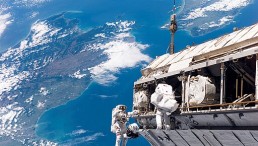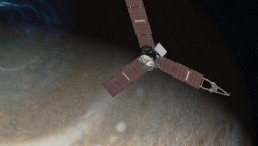We usually put cheese on almost everything, chips, chicken, eggs, and even tea! Yet most of us find the process of cheese making a bit gross and it is this feeling of apprehension toward the microbial cultures in cheese that is explored in a new "human cheese" exhibit in London according to the Smithsonian Magazine.
The project is the brainchild of synthetic biologist Christina Agapakis and artist Sissel Tolaas with support from the University of Edinburgh and Stanford University to combine art, engineering, and biotechnology.
The exhibit, aptly titled "Self-Made", which is part of a larger exhibit, Food: Bigger Than the Plate, features various types of cheeses made from bacteria samples from five British celebrities. It is being held at London's Victoria & Albert Museum with the goal to change how people view microbes.
We've always placed a negative connotation on microbes, but recent studies have shown in fact that these tiny organisms are actually essential to our existence and well being.
"[Microbes] interact with each other, performing different roles, helping to form us, feed us, and protect us. It is now thought that the composition of our microbiome may even affect our mood, weight, intelligence, and personality," the museum's blog explains.
"And as scientists develop new techniques for studying microbes, the popular assumption that they are only a source of harm or embarrassment (unwanted smells) is giving way to a much more complex understanding of the extraordinary things they do for us."
Making the celebrity cheeses were quite simple albeit being off-putting since bacteria found on the human body is similar to those that are used for cheese-making. Bacteria were collected from these celebrities' bodies, such as armpits, ears, noses, even from their bellybuttons and were grown in Petri dishes until suitable strains can be harvested and added to milk to make cheese.
Although the exhibit may not be everyone's cup-of-tea, this bizarre exploration into human repulsion has won some followers.
"It's not gross, it's art," wrote Great British Baking Show runner-up Ruby Tandoh, who submitted a swab of bacteria from her face to be cultivated into Stilton cheese.
Besides Tandoh and Professor Green, other celebrities involved in the artistic bio project are Suggs, frontman for the ska band Madness (cheddar), celebrity chef Heston Blumenthal (comté), and Blur bassist Alex James (armpit-originating Cheshire cheese).
"People have a mixture of repulsion and attraction to cheese," Agapakis said in an interview, adding that "this gives us a chance to have a really interesting conversation about bacteria and odors, and why they might gross people out."
Although, at this time, it hasn't been determined yet whether these human cheeses are safe for human consumption.














